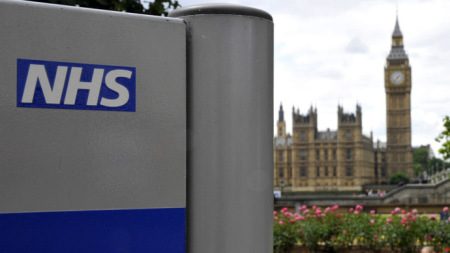UK agency reopens investigation into Christian doctor who prays with patients

A U.K. regulatory agency is reviewing its decision to close a complaint against a Christian doctor accused of violating professional conduct by praying with his patients.
As previously reported, Dr. Richard Scott of the Bethesda Medical Centre in Margate, Kent, faced the possibility of losing his medical license after a complaint was filed against him last year.
Scott, a general practitioner, was subject to a fitness-to-practice inquiry from the General Medical Council after a complaint was filed by the National Secular Society, a British advocacy group promoting the strict interpretation of separation of church and state.
The organization claimed that Scott made a vulnerable patient feel uncomfortable by praying. The allegation was made to NSS by a friend of the patient, not the patient.
The GMC determined last month after a three-month investigation that the complaint did not merit any action because there was “no evidence that [Dr. Scott] discusses faith in situations where the patient has stated that they do not wish to discuss these matters or that he has continued to discuss faith after a patient has indicated that they do not welcome such a discussion.”
At the time, Scott’s legal representatives from the Christian Legal Centre called the GMC decision to close his case “reassurance to Christian doctors and professionals across the U.K. that they can share their faith in the workplace ... without fear of losing their jobs.”
However, the GMC changed its decision to close Scott’s case after the NSS challenged the closure of its complaint and submitted new evidence that Scott was “openly flouting the council's code of conduct.”
The GMC confirmed to NSS that it is reviewing its decision in Scott’s case under Rule 12 of its fitness-to-practice rules. The rule allows for reconsideration if new information comes to light.
NSS’ challenge alleged that Scott’s patients have complained about religion being pushed on them.
Additionally, NSS pointed to an interview Scott did with The Daily Mail last month in which he said that he has discussed his faith with about 40 patients in the past with only about 10 of them issuing a complaint. One of those complaints, from 2012, went to the GMC.
Also, in an interview with BBC Radio Kent in December, Scott declared that as a Christian doctor, one must consider “who is your ultimate boss.”
“And it’s not the general medical council, it’s Jesus Christ,” Scott said. “And I’m prepared to take risks on behalf of Jesus because I’ve seen how much patients can benefit.”
The GMC conduct code stipulates that medical professionals can only talk about their personal beliefs if a patient asks them directly or indicates that they are open to a religious discussion.
The code prevents medical professionals from imposing their “beliefs and values” on patients because it can “cause distress.”
"Dr. Scott's recent comments appear to make clear that he holds the GMC in contempt and considers himself above the rules it puts in place to protect patients,” NSS Chief Executive Stephen Evans said in a statement. “Being an evangelical Christian should not exempt him from the standards expected of all doctors working in the U.K.”
Tim Dieppe, the head of public policy for the U.K.-based think tank Christian Concern, told Catholic News Service that the GMC should have never investigated NSS’ complaint to begin with.
“I think it would be a real shame if they have decided to review it,” Dieppe was quoted as saying. “We are confident that Richard has done nothing wrong.”
Dieppe called NSS’ complaint a “targeted campaign” against Scott.
Follow Samuel Smith on Twitter: @IamSamSmith
or Facebook: SamuelSmithCP





















